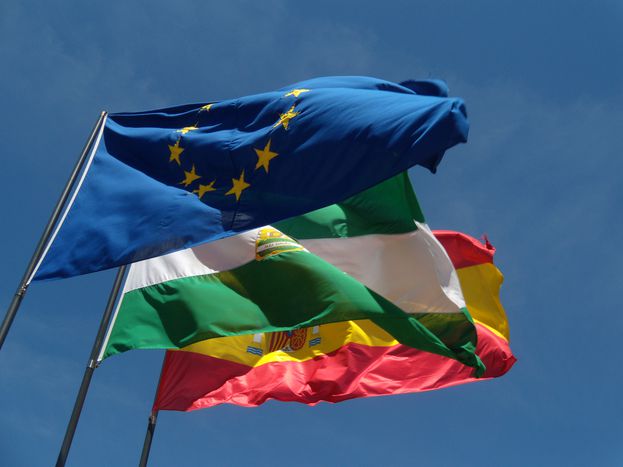
Andalusia, More Eurocentric and More Critical
Published on
Translation by:
Benjamin BartzThe study, The Social Reality of Andalusia, reveals that Andalusians believe that belonging to the European Union is something positive, although 50% think that decisions in Brussels don't affect them.
During celebrations of The Day of Europe, this past 9th of May, panelist and director of the Center for Andalusian Studies, Javier Aroca, presented at the University of Seville the results of the study, showing the vision of Europe on behalf of Andalusians.
If "when entering Europe it was believed that they were going to take all the olive trees of Andalusia", now, 54.6% of Andalusians see belonging to the EU as something positive. The change could mean that the EU is viewed favorably now because time has given us experience and experience says that we have survived the crises, making us think that we will survive this one. And although the media portrays the EU as confronting their most important crisis, history is on the side of Europe. Europe was born out of crisis and perhaps the present one is necessary to change the course towards a European Union with firmer values.
There are precisely three crises that are opening a rift in Europe which most worry the inhabitants of the region. Immigration, the economy and terrorism are questions that make Andalusians think the most. But it also worries Andalusians to see how Europe is Germanizing. 9 out of 10 see Germany as the country that commands in a Europe which they feel is shifting ever nearer to the right.
In addition, the inhabitants of the region think that the European Union has great beneficiaries of the richest zones of the continent. A contradictory fact if one considers that Andalusia has been one of the regions that have received more European funds. For that reason, Andalusia requests that Europe listens to them because 25% think that they do not have any possibility of influencing decisions in Brussels, whereas 6 out of 10 see the European Union as something, to them, very distant.
As far as the economic crisis is concerned, 45.8% of Andalusians think that belonging to Europe has been helpful at confronting it. Whereas 85.5% affirm that, during the crisis, they have never seen the euro in danger.
In general, the study reveals that Andalusians, at the same time, have a positive global vision of belonging to the EU that, in certain aspects, shows their disaffection towards Brussels. But this disaffection does not have to be interpreted as something negative, but actually exactly the opposite. Critical awareness arises from knowledge and perhaps it is now that citizens are becoming truly conscious of the role of European institutions.
Translated from Andalucía, cada vez más europeísta y más crítica



